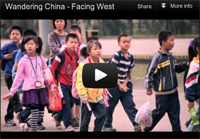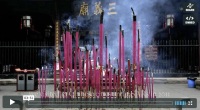Nobel laureate Michael Spence on a crucial point of China’s development – and how long after Deng Xiaoping’s and Lee Kuan Yew’s friendship that helped sparked the opening of China, Singapore’s lesson of one-party rule remains poignant.
As a one-party system with a somewhat similar ethnic complexion it continues to maintain popular legitimacy despite a high media literacy rate by design. Despite recent challenges, it still largely calls the shots on policy while transitioning to first world status with a knowledge economy that shifted from too, manufacturing.
Like Singapore, Japan, South Korea, and Taiwan in their first few decades of modern growth, China has been ruled by a single party. Singapore’s People’s Action Party (PAP) remains dominant, though that appears to be changing. The others evolved into multi-party democracies during the middle-income transition. China, too, has now reached this critical last leg of the long march to advanced-country status in terms of economic structure and income levels.
That said, it is most probable it is a case study of the many others they would consult in taking care to cross the river in highly turbulent times. Singapore is not definitive, but a series of stones the Chinese will feel around for before updating or reconfiguring their own socialist system to fit those needs.
From financial crises to violent revolution, what reason would China have to look that way for inspiration? Only for lessons on how not to do it I believe.
China has 1.3 billion mouths to feed. Singapore has 5.3 million. The official reported population density of about 7,257sq km from Singstats in 2011 this official stat does not consider the fact that Singapore has zoned out a 40% nature green sponge if you will, for water catchment, so true habitable space = 60% of 715sqkm).
Both cannot afford to make mistakes in their use of large scale systems.
That is where the lesson will be drawn. How it seldom makes mistakes, and when it does – it knows how to handle it in both foreign while giving domestic and alternative press some leeway for discourse.
– – –
President Xi’s Singapore Lessons
by Michael Spence
Source – Project Syndicate, published November 19, 2012
NEW YORK – China is at a crucial point today, as it was in 1978, when the market reforms launched by Deng Xiaoping opened its economy to the world – and as it was again in the early 1990’s, when Deng’s famous “southern tour” reaffirmed the country’s development path.
Throughout this time, examples and lessons from other countries have been important. Deng was reportedly substantially influenced by an early visit to Singapore, where accelerated growth and prosperity had come decades earlier. Understanding other developing countries’ successes and shortcomings has been – and remains – an important part of China’s approach to formulating its growth strategy.
Like Singapore, Japan, South Korea, and Taiwan in their first few decades of modern growth, China has been ruled by a single party. Singapore’s People’s Action Party (PAP) remains dominant, though that appears to be changing. The others evolved into multi-party democracies during the middle-income transition. China, too, has now reached this critical last leg of the long march to advanced-country status in terms of economic structure and income levels. Read the rest of this entry »
Filed under: Beijing Consensus, Charm Offensive, Chinese Model, Collectivism, Culture, Democracy, Domestic Growth, Economics, Education, Government & Policy, Great Firewall, Great Wall, Greater China, Influence, International Relations, Mapping Feelings, Media, Modernisation, New Leadership, Overseas Chinese, Peaceful Development, Politics, Population, Project Syndicate, Public Diplomacy, Reform, Singapore, Social, Soft Power, Strategy, Tao Guang Yang Hui (韬光养晦), The Chinese Identity, The construction of Chinese and Non-Chinese identities, Xi Jinping, China's Rise, culture, Democracy, Human rights, Identity, Media, Politics, Propaganda, Public Diplomacy, Singapore, Social


















The Sharing Circle